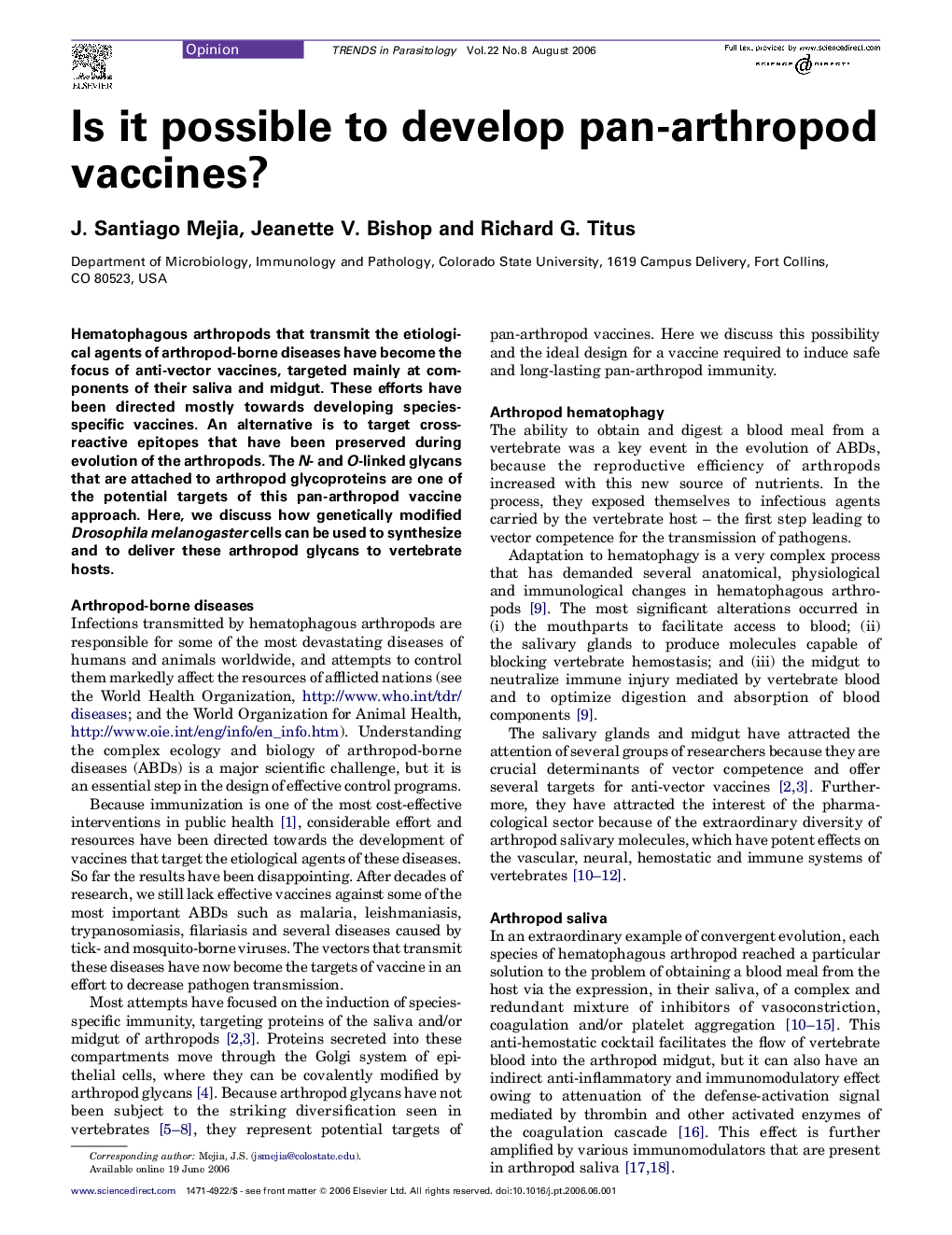| Article ID | Journal | Published Year | Pages | File Type |
|---|---|---|---|---|
| 3423795 | Trends in Parasitology | 2006 | 4 Pages |
Abstract
Hematophagous arthropods that transmit the etiological agents of arthropod-borne diseases have become the focus of anti-vector vaccines, targeted mainly at components of their saliva and midgut. These efforts have been directed mostly towards developing species-specific vaccines. An alternative is to target cross-reactive epitopes that have been preserved during evolution of the arthropods. The N- and O-linked glycans that are attached to arthropod glycoproteins are one of the potential targets of this pan-arthropod vaccine approach. Here, we discuss how genetically modified Drosophila melanogaster cells can be used to synthesize and to deliver these arthropod glycans to vertebrate hosts.
Related Topics
Life Sciences
Immunology and Microbiology
Parasitology
Authors
J. Santiago Mejia, Jeanette V. Bishop, Richard G. Titus,
